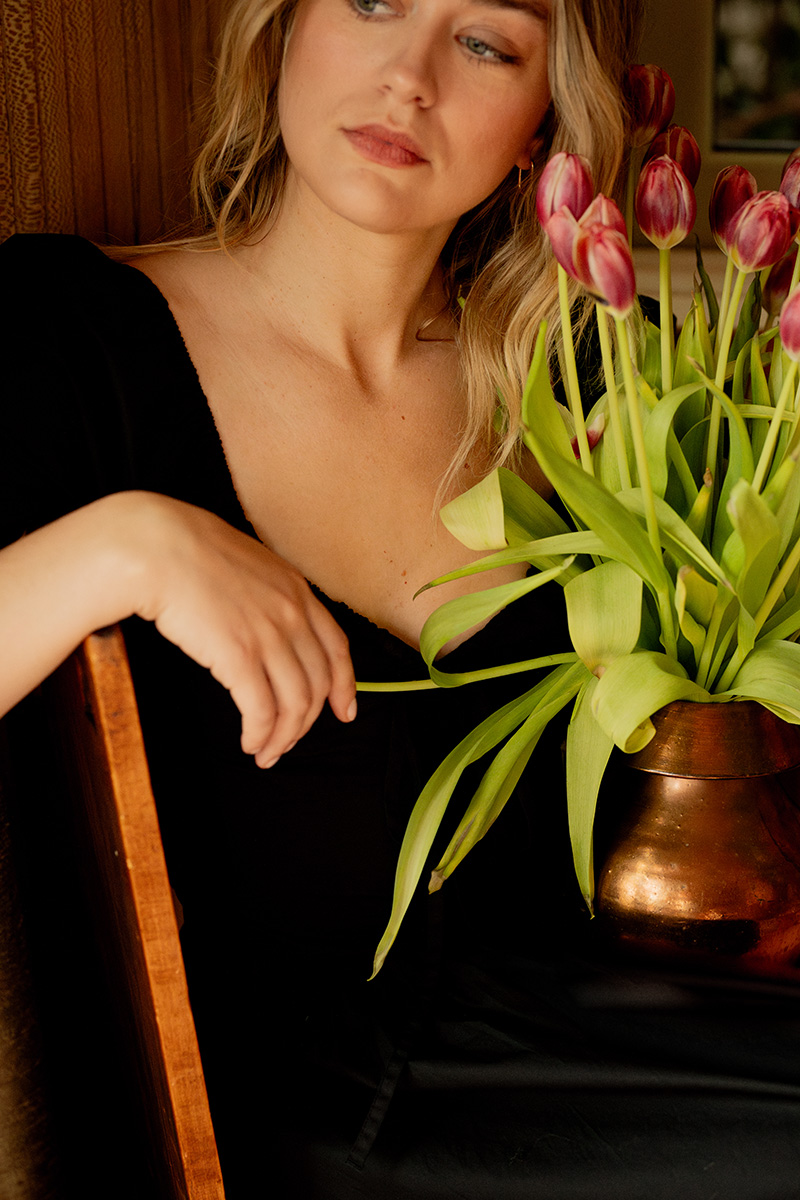
How To Grow Alongside Your Partner—Even When You Change
There are seasons in life that seem to last forever. Then, there are mornings when you wake up and realize an entire decade has gone by.
You’re older, you’re different, and all of your former selves feel little more than distant memories. When you roll over and see the person lying next to you, you realize that they, too, have changed. It’s not necessarily a bad thing—this unfamiliar face in your bed—it’s just that they no longer resemble the person you fell in love with years or even decades ago.
By the time you read this, my husband and I will be toasting drinks somewhere along the coast of Mexico. This year is our 13th wedding anniversary, and so we’ve planned a seaside escape to reflect on the vows we once exchanged. But our journey to get here hasn’t always been a walk on the beach, if you will. Far from it actually.
We met 14 years ago on a frigid January day, when the Colorado sky looked so clear you could almost drink it. Our meet-cute blossomed into a fleeting summer romance and by the fall, when I moved away for college, we tempted fate and tried our luck at long distance. And it worked. Two years later, we were married under that same Colorado sky, this time peppered with thunderclouds.
The first few years of marriage were rocky for us, as the initial romance wore away and we settled into life together. It was me who changed first, which likely isn’t surprising since I was in my early 20s and still figuring out who I was and what I believed. I began questioning my beliefs and worldview, which isn’t easy to begin with but is all the more difficult while navigating a new marriage. It wasn’t just my values that shifted, either; it was also my tastes, my friends, my aspirations, my dreams.
I hardly knew who I was, much less who I wanted to be. While my metamorphosis was obvious, my husband changed more gradually. From multiple career transitions to deconstructing his former beliefs, he, too, compressed and expanded.
“While my metamorphosis was obvious, my husband changed more gradually. From multiple career transitions to deconstructing his former beliefs, he too compressed and expanded.”
As we grew individually, we moved in different directions. There were many seasons in those first few years of marriage when my husband and I didn’t understand or recognize one another. It was challenging to remain steady during these questioning moments, and I often found myself wondering: How will we ever find our way back to each other?
But people change; we’re not meant to remain static. Life experiences and challenges shape us, molding us into many versions of ourselves. Like clay, we remain pliable and morph into surprising shapes, even when we convince ourselves we’ve been cast in our final form. And this is also true of our partners. Staying together wasn’t always the easiest option, but it was during these moments of immense change we discovered this truth: Growth—both as individuals and as a couple—doesn’t come without its reward. It isn’t easy, but it can be beautiful and so worth it.
Of course, not all relationships last forever, and each person and couple knows what’s best for their journey. For my husband and me, we knew our path forward included the other person by our side, even during the moments when we didn’t recognize one another. We only needed to learn how to grow together, even as we grew apart from our former selves. And in doing this, we were always able to come back to each other with a new and evolved version of ourselves. Here are just a few of the things I’ve learned along the way.
How to navigate growth with your partner
1. Be honest with yourself and your partner.
Early on in my marriage, when I first began questioning some of the religious beliefs that I grew up with, I told my husband. It wasn’t one big conversation but rather hundreds of small chats over many months. It was scary at first—and we weren’t always on the same page—but it was also comforting to have someone witness the change that was happening inside me. And by talking about my journey, my husband and I felt closer to each other.
Honesty is key. When we’re truthful with ourselves and the people we love, our relationships flourish, and—most importantly—we can feel at peace. It doesn’t matter if your growth seems inconsequential, either. Whether you have a new favorite food or you’ve switched religions, communicating with your partner can help them to better understand where you’re at and what you’re going through. It also opens up space for them to share about possible changes in their life. As hard as vulnerability may seem, I’ve always found it to be worth it.
“When we’re truthful with ourselves and the people we love, our relationships flourish and—most importantly—we can feel at peace.”
2. Continue to take an interest in one another.
My husband is still the same adventurous and goofy person he was the day we met. But, in the last decade, he’s also taken up new hobbies, changed political parties, and discovered he loves the mountains more than the ocean. Some things stay the same, and some change—in ourselves, in our relationships, and in our partners. But we can continue to take an interest in one another, ask about these changes, and notice growth.
“Remember how it was when you first fell in love.”
That said, date your partner! Remember how it was when you first fell in love. Send flirty texts, dress up and try new restaurants, and take trips to familiar cities and to places you’ve never been. Continue asking the deep questions and also the lighthearted ones.
3. Give yourself space to grow together, and also separately.
As you grow alongside your partner, take time to nourish self-growth outside of your relationship, too. While our relationships complement us, they do not complete us, and we must first nurture ourselves before we can adequately care for our partners. Here are a few tips for cultivating independence in a long-term relationship.
Likewise, in seasons of growth, prioritize solo time. But instead of viewing it as “time apart,” treat it as breathing room, or rather space to process change and come back to your relationship with clarity. Sometimes this can look like an afternoon or weekend away; in other instances, it can look like weeks apart. Space will be unique to each relationship, but it can ultimately help in seasons where you may be overwhelmed by your or your partner’s evolution.
4. Rely on your community and relationship resources.
Sometimes, growing together is hard, like really hard. And it’s during these moments when your outside community and even relationship resources can feel necessary for survival. No couple is an island, and there will be times when you feel stuck or like your partner is growing in ways that don’t make sense to you. Alternatively, you may find yourself changing in ways that feel impossible to articulate.
Growth is often accompanied by many emotions and feelings, and it can be helpful to lean into our communities for support. Other couple friends can be a wonderful gift in trying seasons, and therapists can help navigate hard conversations if that’s an option for you.
5. Celebrate (and grieve the loss of) who you once were—together and as a couple.
Finally, grief comes with realizing you and your partner are no longer the people you once were. But there is also freedom in allowing yourself to admit that truth.
It’s okay to take time to process the change, but rather than trying to return to the past, focus on how far you’ve come. Celebrate who you both once were—as individuals and as a couple—and grieve for what is no longer, if you must. Thank your former self and your former partner for bringing you to where you both are today.
Then, shift your attention to the beauty up ahead—however that looks for you and your relationship. Consider what it would mean to love your partner right now, while also nurturing and witnessing their growth alongside your own.
Perhaps then you’ll roll over in the morning to discover that the person you’re sleeping next to isn’t in fact a stranger; they’re who you’ve loved all along. They’ve just grown a bit, as have you.
“Consider what it would mean to love your partner right now, while also nurturing and witnessing their growth alongside your own.”
Kayti Christian is a Senior Content Strategist at The Good Trade. She has a Master’s in Nonfiction Writing from the University of London. She is the creator of Feelings Not Aside, a newsletter for sensitive people, and cohost of the FriedEggs Podcast, a podcast about IVF and infertility.




